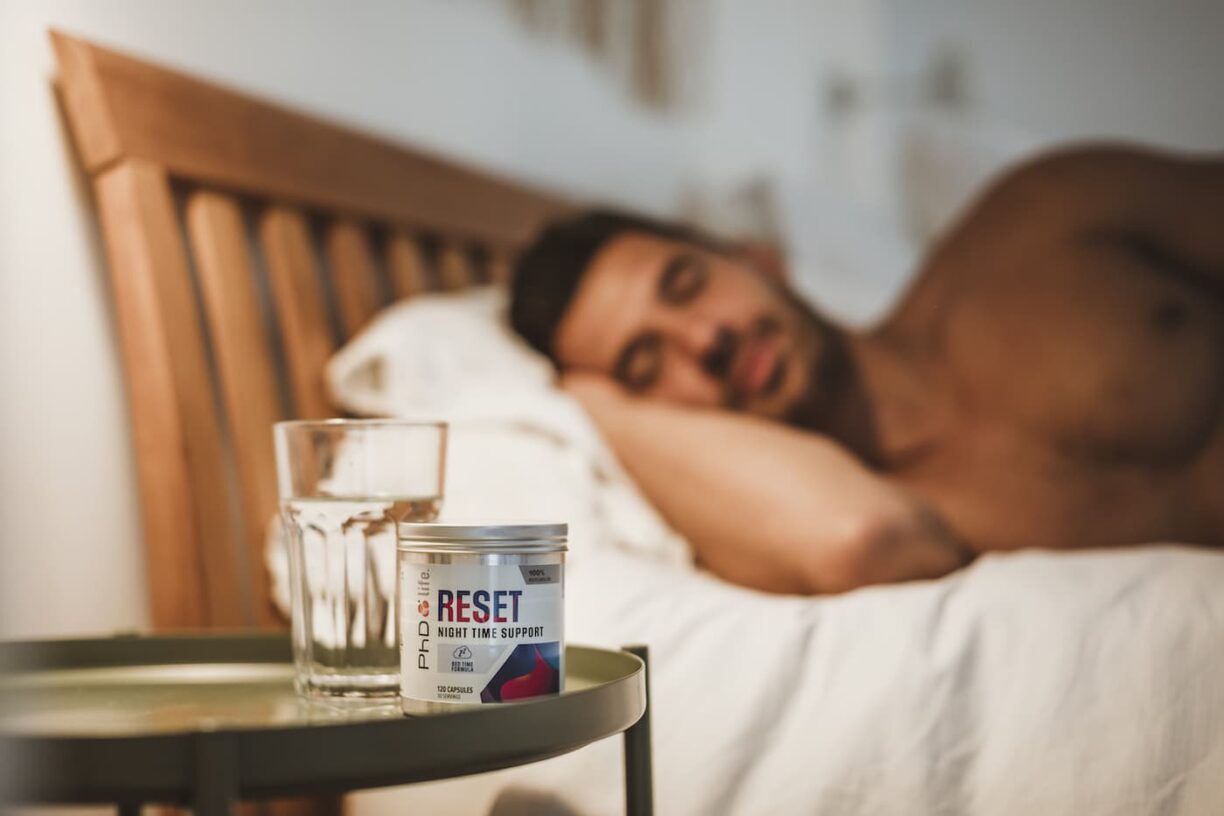As a runner, you know how important it is to fuel your training properly, to stretch and foam roll for recovery, and perhaps you even use home recovery tools like a massage gun.
But do you optimise your sleep? Or do you allow yourself to scroll through your phone for hours while sitting in bed and constantly get woken up throughout the night?
Why is sleep so important for runners?
Sleep is one of the main components of recovery and as such should be prioritised just as highly as training, fuelling, and hydrating.
Lack of quality sleep can lead to impaired cognitive function (casually known as ‘brain fog’), slower reaction times, reduced recovery, and even hormone imbalances.
Here are five ways you can optimise your sleep this autumn to maximise your training gains and improve your overall lifestyle and happiness.

- Optimise your sleep schedule
Having a set bedtime isn’t just for kids! Going to bed and waking up at the same time every day – even at the weekend – is scientifically associated with a healthier pattern of lifestyle behaviours.
In a 2013 study, participants who had bedtimes that varied by more than 30 minutes from day to day were associated with more frequent insufficient sleep and a less healthy pattern of lifestyle.
Try to find a bedtime and a wake-up time that work for your lifestyle schedule on both weekdays and weekends and stick to it every day.
You may even find you feel better forgoing your weekend lie-in and end up with more energy throughout the day.
- Optimise your sleeping space
According to scientists, the thermal environment (i.e. the temperature of your bedroom) is one of the most important factors that can affect human sleep.
Our core body temperature naturally decreases as night draws in and this signals to our brain that it’s time to go to sleep.
A 2012 study found that heat exposure increases wakefulness and decreases slow wave sleep and rapid eye movement (REM) sleep, meaning that if your bedroom is too hot, you will have a less restful night’s sleep.
Thankfully, now that it’s autumn, the warm summer nights are behind us and we can snuggle up comfortably in bed.
If you start to have the heating on during the day, be mindful to turn it right down in the hours before you go to bed, or alternatively turn off the radiator in your bedroom so that it stays at a cooler temperature.
- Reduce screen time before bed
We all know that extended screen time isn’t good for us, but did you know it could be affecting your sleep too?
Electronic devices emit blue light which can suppress melatonin production. Melatonin is the sleep hormone, which the body produces just after it gets dark, peaking in the early hours of the morning and reducing during daylight hours.
Blue light isn’t a new invention and isn’t restricted to electronic devices, in fact we have natural exposure to blue light from the sun.
It’s a natural light that stimulates parts of the brain that make us feel alert, elevating our body temperature and heart rate.
During the day, blue light can improve performance and attention, which is why it’s so important to spend time outdoors during the day.
However, if you prolong your exposure to blue light by staring at a screen after the sun has set, you will interrupt your body’s natural sleep rhythm and disturb your sleep pattern.
Many smartphones now have the function to automatically switch from blue light once the sun has set, so if you are going to use your phone after dark, make sure this function is turned on.
- Optimise your food and drink intake
As a runner, it’s quite possible you drink coffee or take some sort of caffeine supplement to boost your training.
While it’s certainly true there are short-term performance benefits to caffeine consumption, overuse can lead to insomnia and interrupted sleep patterns.
If you’re someone who relies on caffeine to get you through the day or to get you through tough training sessions, be strategic with your intake so that you can benefit from the performance enhancement without affecting your sleep.
You may think that only drinking coffee several hours before bedtime won’t affect your sleep, but you may be wrong.
One 2013 study set out to compare the disruptive sleep effects of a fixed dose of caffeine (400 mg) administered at 0, 3, and 6 hours prior to the participants’ bedtime.
You would think that taking caffeine 6 hours before bed wouldn’t affect sleep as much as taking it right before going to bed, however the results found that the moderate dose of caffeine at bedtime, 3 hours prior to bedtime, and 6 hours prior to bedtime each had significant effects on sleep disturbance.
Be mindful of what you’re putting into your body in the hours before you go to bed and avoid drinking coffee in the afternoon.
- Take a supplement
If you’ve done everything you can to improve your sleep but are still struggling with fatigue throughout the day and restlessness at night, taking a sleep supplement such as one from the PhD Reset range, could give you the support you need.
The best supplements contain active ingredients proven to improve the quality of your sleep.
They support night-time muscle maintenance and recovery whilst also supporting deep restful sleep.
For some people, optimising their sleep space and reducing disturbances in the night isn’t something they can control, so knowing you can rely on a supplement to support you is a fantastic option and could even reduce the anxiety associated with not being able to sleep well.
About the author:
Alex Parren is a qualified personal trainer, nutritionist, and running coach with 7 years experience in the fitness industry.
With a background in both powerlifting and Olympic lifting, Alex is now a keen ultra runner and can usually be found exploring the trails in the south of England.
